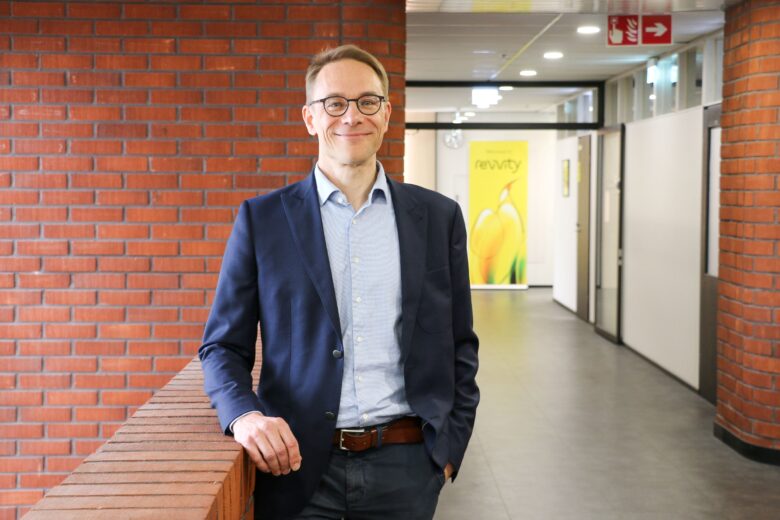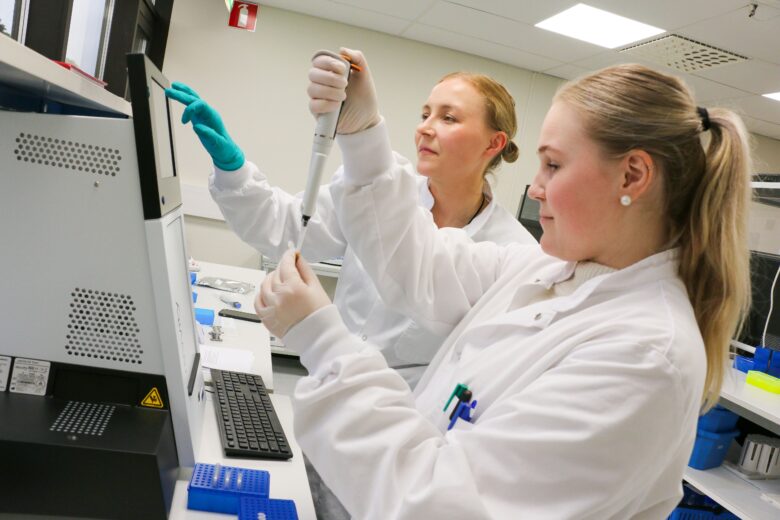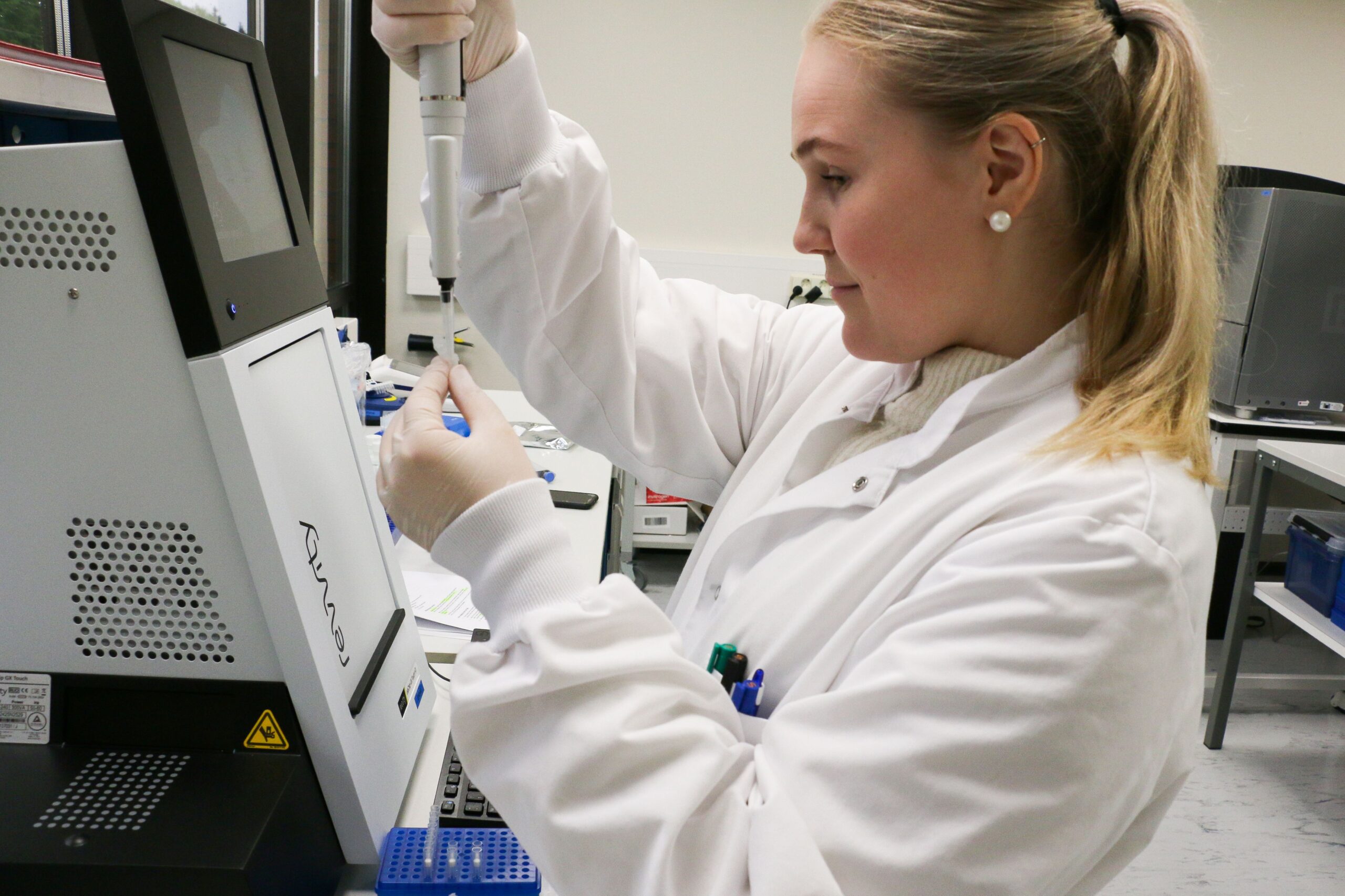Revvity is a global market leader in newborn screening systems. Developing these systems requires top specialists from multiple fields – people who are not only highly skilled in their own field, but also curious about the whole system.

The sense of purpose in everyday work is truly tangible at Revvity’s Turku site in Southwest Finland. The unit develops and manufactures systems for screening rare diseases in newborns.
– With the systems we develop, we help to save an average of 85 newborns every day, giving them a healthy start in life, says Janne Seppälä, Sr. Director, R&D Reproductive Health.
He says that it is now possible to screen for more than 50 different conditions present at birth, which, if left untreated, can lead to severe disability or even death. Screening tests help to detect diseases early, so babies can receive timely treatment.
– We also develop and manufacture prenatal screening systems to monitor the health of expectant mothers and their unborn babies, Seppälä adds.
Revvity is a global diagnostics and life sciences company with approximately 11 000 employees. The Turku site is one of its largest product development and manufacturing units. The unit began operations in 1950 under the name Wallac.

Innovations Hand in Hand with Clients
Seppälä’s product development unit’s work focuses on how to get accurate clinical information, as efficiently as possible, from a tiny blood sample taken from a baby’s heel. Product development is done in a global network, in cooperation with clients.
– We work closely together with other Revvity R&D sites, the leading researchers in the field and other health tech companies. New product concepts are tested early on in customer laboratories, Seppälä says.
One of Revvity’s latest innovations at the Turku site is the PCR technology based EONIS Q system, which can simultaneously screen for severe immune deficiency disorders and spinal muscular dystrophy.
The Turku unit is also developing an NGS-based (next generation sequencing) research product together with Revvity R&D network. Its aim is to identify a greater number of rare genetic diseases simultaneously.
Does your company need support with research collaboration, product development, or commercialization? Business Turku’s experts will help you get on the right track.
Collaboration with Universities to Secure Skilled Talent
Revvity develops integrated systems. They entail not only the screening tests but also the equipment and software that the customer laboratories need for carrying out the screening.
Developing these systems requires expertise in chemical engineering, biotechnology, hardware, and software. Seppälä says that systems thinking is vital in Revvity’s R&D.
– You need to be not only a top professional in your own field but also curious about the whole system.
In recent years, Seppälä has strengthened his unit’s expertise in mass spectrometry and molecular diagnostics. On the software side, investments have been made in developing cloud services and introducing the first AI solutions into products.
Collaboration with Universities helps Revvity to secure skilled talent. Many have stayed on at Revvity after completing their thesis work or internship with the company.
Partners and Growth through Networking
At Revvity, product development is funded at the corporate level. According to Seppälä, cooperation with Business Finland has helped in creating partnerships for research projects.
From day one, Revvity has also been an active contributor to the development of Women’s Health Hub Finland, coordinated by Business Turku. The hub brings together pharmaceutical and diagnostics companies, researchers, and public-sector partners, with a shared goal: to fast-track innovation and progress in women’s health worldwide.
– The hub highlights the excellent expertise we have locally and promotes collaboration within the field, Seppälä says.
He looks to the future with confidence. There is a lot of work to be done and many business opportunities to pursue.
– Only a small share of diseases is currently covered by screening programs, and only around a third of newborns have access to screening globally.
Text: Heidi Pelander
Photos: Heidi Pelander
Business Turku: Lotta Kujanpää, Pia Lappalainen
This article is part of the TKI-kompassi project, funded by the Regional Council of Southwest Finland.

